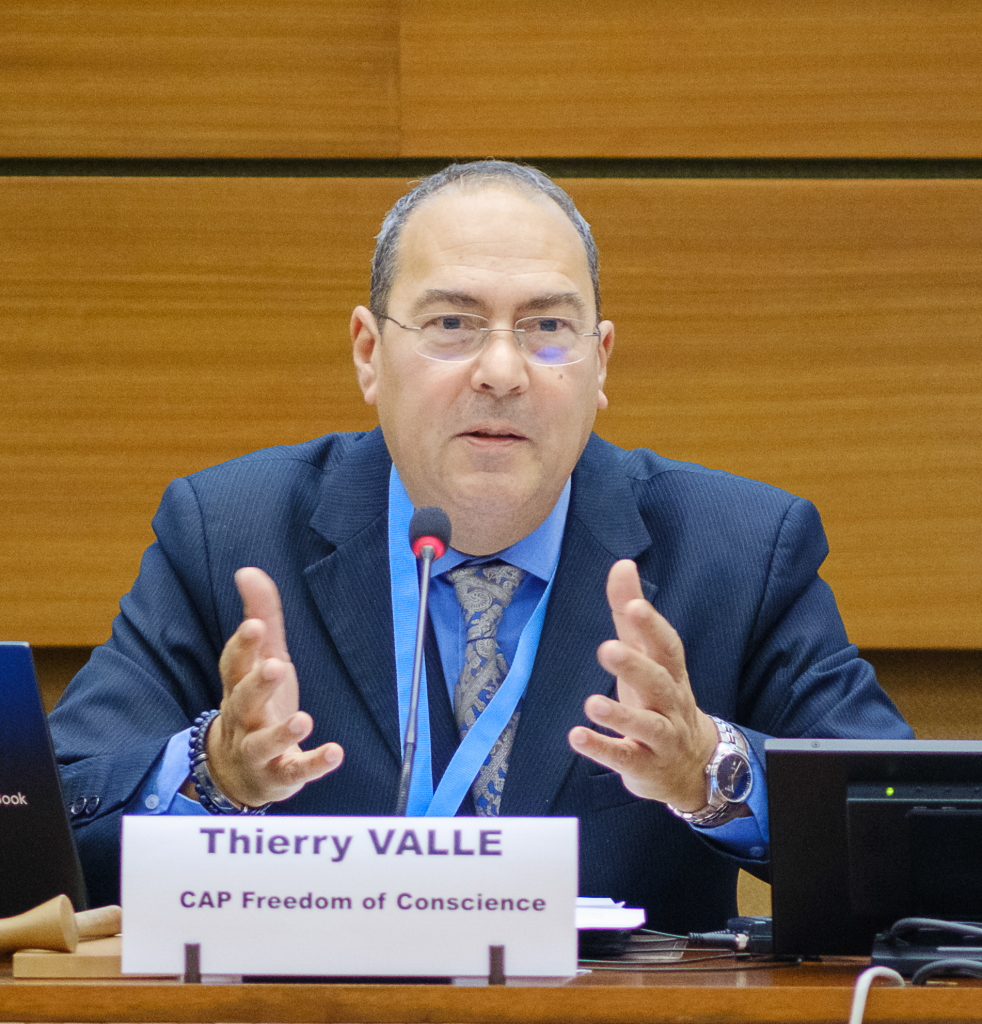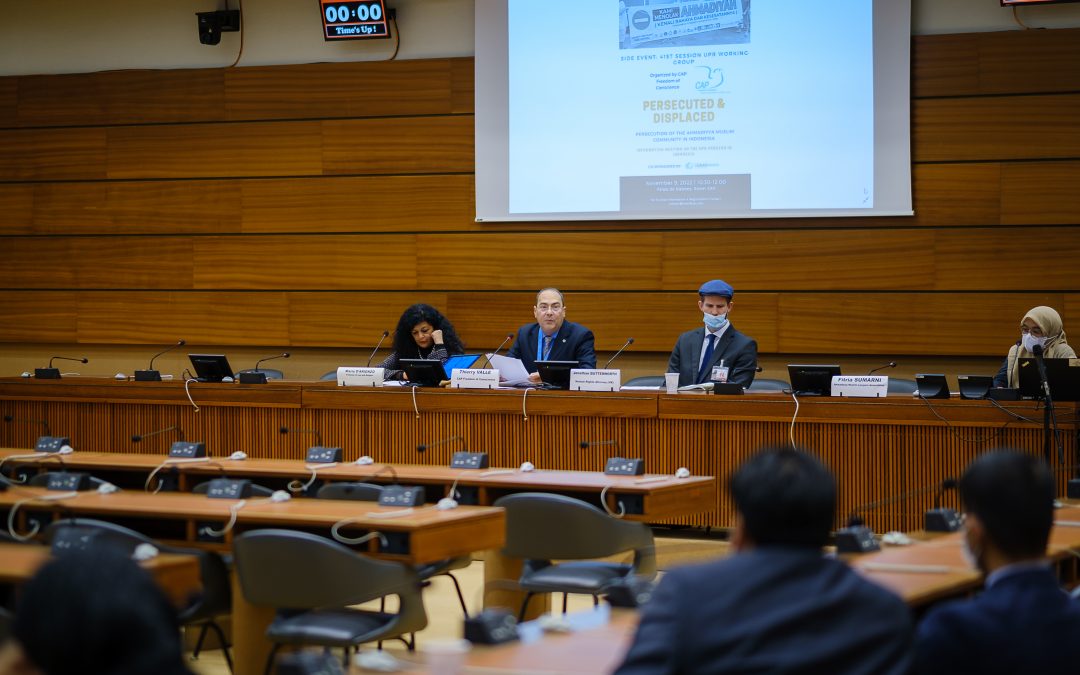 CAP Liberté de Conscience is a secular European created in 1995 and dedicated to protect the Right of Freedom of Religion and Belief. We combats all forms of discrimination based on religion or belief by alerting European and International bodies. We collects testimonies of discrimination and human rights violations affecting religious or belief communities in order to disseminate them to international bodies, and in order to raise awareness and inform them as well as to generate debate on the protection of Freedom of Religion and Belief. We also advocates for any religious or spiritual group facing discrimination to have their right to Freedom of Religion and Belief recognized.
CAP Liberté de Conscience is a secular European created in 1995 and dedicated to protect the Right of Freedom of Religion and Belief. We combats all forms of discrimination based on religion or belief by alerting European and International bodies. We collects testimonies of discrimination and human rights violations affecting religious or belief communities in order to disseminate them to international bodies, and in order to raise awareness and inform them as well as to generate debate on the protection of Freedom of Religion and Belief. We also advocates for any religious or spiritual group facing discrimination to have their right to Freedom of Religion and Belief recognized.
This side-event is co-organize by The International Human Rights Committee (IHRC) is a non-profit and non-governmental organisation focusing on freedom of religion or belief. The IHRC has specific expertise and experience of working with marginalised religious groups and advocating their precarious position to bring about effective change so that they can enjoy the same rights as other citizens.
We welcome the positive achievements of Indonesia in protecting and respecting freedom of religion or belief, but we remain concerned about the treatment of religious minorities in Indonesia, as several member states have expressed their concerns in this regard.
Indeed, despite numerous recommendations from over ten different States to review national and provincial laws during Indonesia’s UPR in the 3rd cycle, the member state has made little progress in reforming these systemic violations of freedom of religion.For example,
Canada recommended Indonesia “take strong coordinating measures to protect the right to freedom of religion or belief, including by ensuring that all district and provincial laws and regulations align with the Constitution and international human rights obligations of Indonesia,”
while the Netherlands recommended further “necessary measures to protect freedom of religion and belief for persons belonging to all religious groups, including by protecting persons belonging to religious minorities from violence and persecution.”
Panama also recommended Indonesia « Ensure that religious minorities can freely exercise their right to freedom of thought, conscience and religion »
Switzerland recommended Indonesia « Adapt its legislation and take the necessary measures to guarantee the full enjoyment of the right to freedom of religion or belief, including for religious minorities »
And about the right to worship Guatemala recommended Indonesia to « Guarantee that religious minorities can freely exercise their right to freedom of thought, conscience and religion in worship, as well as their observance, practice and teaching »
Regarding these concerns for this UPR cycle, the following member states submitted the following questions :
Panama asked I quote « We would appreciate if Indonesia could provide an update on the progress made in the implementation of this recommendation, in particular measures adopted to promote interfaith dialogue and religious tolerance, and to protect religious minorities from all forms of violence and discrimination. »
Sweden mention that during the last cycle, Indonesia supported the recommendations to protect persons against attacks because of religious affiliation and ask for this cycle what actions are being taken to investigate assaults against persons belonging to religious minorities and to bring those responsible to justice?
In the compilation of information prepared by the Office of the United Nations High Commissioner for Human Rights
The United Nations country team expressed ongoing concern about a 2006 joint regulation on the construction of houses of worship, under which minority religious groups were required to obtain signatures of approval from the majority faith group and endorsement letters from the local administration and the religious harmony forum in order to build a house of worship. It also noted that vigilante groups and hardliner groups had often used the regulation, citing allegedly faulty or missing permits and paperwork, as a pretext to incite violence, vandalize houses of worship or pressure local officials to delay, deny or revoke permits.It also expressed concern about the enforcement of the blasphemy law and broad restrictions on expression related to religion or belief, including the censoring, filtering and blocking of digital applications to curtail access to religious scriptures.
The international experts assembled today will now expose the current situation of freedom of religion or belief for minorities in Indonesia.
To do so, they will present the alarming case of the Ahmadiyya Muslim Community.



